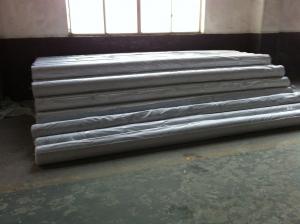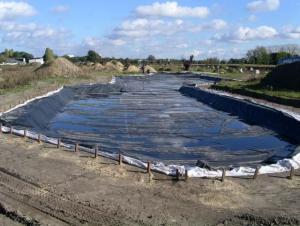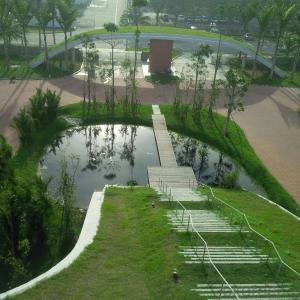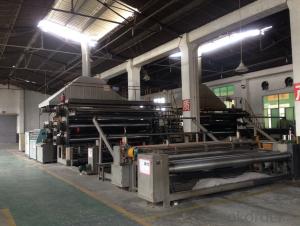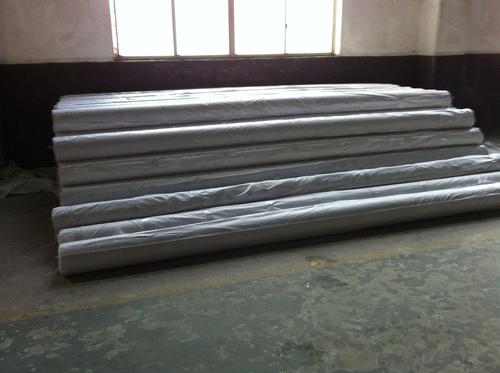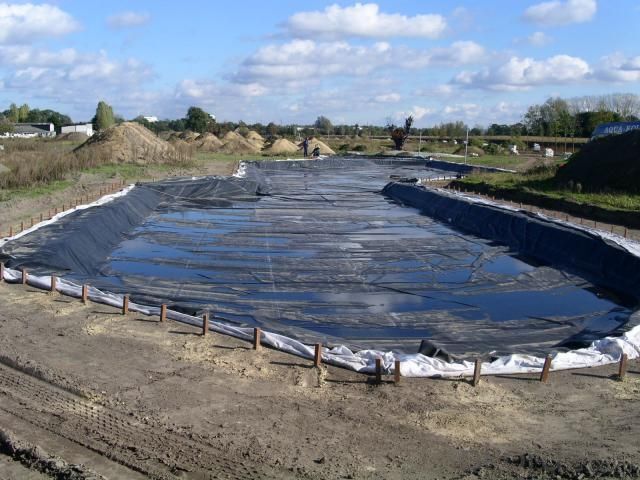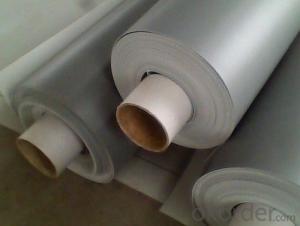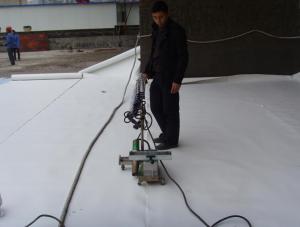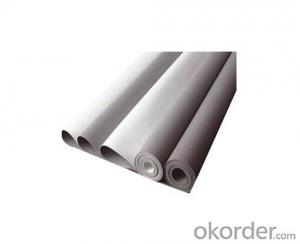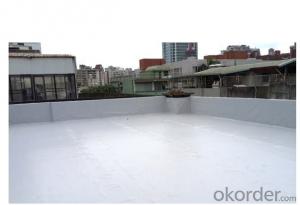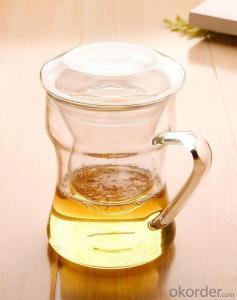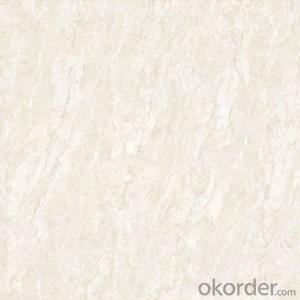Pond liner excellent manufacturer 2015 HOT
- Loading Port:
- Qingdao
- Payment Terms:
- TT OR LC
- Min Order Qty:
- 1000 m²
- Supply Capability:
- 1000000 m²/month
OKorder Service Pledge
OKorder Financial Service
You Might Also Like
1. Introduction
| EPDM waterproof membrane is made from ternary ethylene-propylene
rubber, which is for waterproofing of exposed and non-exposed applications.
| EPDM waterproof membrane production adopts the world-advanced equipment of
cold feeding extrusion and continuous vulcanization technology.
| EPDM waterproof membrane is of high elasticity among high polymer waterproof materials
and becomes a world-popular waterproofing material.
2. Specification
1) Material: EPDM Rubber
2) Size: 1.2m/2m/3m/4m (width)*20m (length) or customized,
3) Thick: 1.2mm, 1.5mm, 2.0mm
4) Type: Weldable
5) Pattern: Non-reinforced (homogeneous)
6) Certificate: ISO9001/14001
3. Features
| Excellent physical and mechanical performance
| High tearing resistance
| Good deformation adaptability
| High puncture resistance
| High aging resistance
4. Applications
l Roofs, Basement, Toilets
l Industrial and civil building waterproofing
l Geosynthetic liner for swimming pool, channels, irrigation system
l Especially suitable for projects with high requirements in durability, anti-corrosion and
deformation.
- Q: Can a waterproofing membrane be used for bridges?
- Yes, a waterproofing membrane can be used for bridges. Waterproofing membranes are commonly used in bridge construction to protect the bridge deck and structural elements from water penetration and moisture damage. The membrane forms a barrier against water and prevents corrosion of reinforcing steel, extending the lifespan of the bridge.
- Q: Can a waterproofing membrane be used for theaters or concert halls?
- Yes, a waterproofing membrane can be used for theaters or concert halls. Waterproofing membranes are commonly used in construction to protect buildings from water damage. The membrane can be applied to various surfaces, including walls, floors, and roofs, helping to prevent water penetration and moisture-related issues. In theaters or concert halls, where there may be a significant risk of water damage due to heavy rain, leaks, or potential spills, using a waterproofing membrane can provide an extra layer of protection and help preserve the structural integrity of the building.
- Q: Can a waterproofing membrane be used on tunnels with subway systems?
- Yes, a waterproofing membrane can be used on tunnels with subway systems. In fact, it is highly recommended to install a waterproofing membrane in subway tunnels to prevent water infiltration and potential damage to the structure and electrical systems. The waterproofing membrane acts as a barrier to keep water out and protect the tunnel from moisture-related issues such as corrosion, mold, and deterioration. It is important to choose a waterproofing membrane that is specifically designed for tunnel applications and can withstand the unique conditions and challenges of subway systems, such as high traffic loads, vibrations, and exposure to chemicals. Additionally, the installation of the waterproofing membrane should be done by experienced professionals following the appropriate guidelines and specifications to ensure its effectiveness and longevity.
- Q: Are there any specific installation techniques for corners and edges when using a waterproofing membrane?
- Yes, there are specific installation techniques for corners and edges when using a waterproofing membrane. These techniques are important to ensure that the corners and edges are properly sealed and protected from water infiltration. For corners, it is recommended to use corner flashings or preformed corner pieces specifically designed for waterproofing applications. These corner flashings or preformed pieces are typically made of flexible materials such as rubber or PVC and are installed over the membrane to provide a watertight seal. They should be securely fastened to the substrate and overlapped with the membrane to create a continuous barrier against water. When it comes to edges, it is crucial to install edge flashings to prevent water from seeping underneath the membrane. Edge flashings are installed along the perimeter of the waterproofing membrane and are typically made of the same material as the membrane itself. They should be properly sealed and securely fastened to the substrate to ensure a tight and reliable seal. Additionally, it is important to properly overlap the membrane at corners and edges to create a seamless and continuous barrier against water. The manufacturer's instructions should be followed carefully to ensure the correct overlap width and method. Generally, a minimum overlap of at least 2 inches is recommended for corners and edges. Overall, the specific installation techniques for corners and edges when using a waterproofing membrane involve the use of corner and edge flashings, proper sealing and fastening, and correct overlap of the membrane. Following these techniques will help to ensure a reliable and effective waterproofing system.
- Q: Waterproof membrane in the escape when the full shop, empty shop, shop, shop what is the difference?
- 3, point shop paving the membrane, the membrane and the base layer with point-like bonding. Requires no less than five points per square meter of bonding. Each paste area of 100mm * 100mm. Between the point and the point should be equidistant plum-like distribution (the method can be used at the grass-roots level coating, coiling point of the membrane point coincidence).
- Q: Can a waterproofing membrane be used for a foundation wall?
- Yes, a waterproofing membrane can be used for a foundation wall. Waterproofing membranes are commonly used to prevent water infiltration and moisture issues in below-grade structures such as basements and foundation walls. These membranes act as a barrier to protect the foundation from water damage, helping to keep the interior of the building dry and preventing structural problems caused by moisture.
- Q: What is the use of waterproof membrane?
- It is the first barrier between the foundation of the project and the building, which is the first barrier to the entire project. It plays a vital role in the whole project.
- Q: Can waterproofing membranes be applied in cold weather?
- Indeed, waterproofing membranes are capable of being applied in chilly conditions. Nevertheless, it is imperative to take into account several factors when carrying out the application of these membranes in low temperatures. The curing process of the membrane can be affected by cold weather, which has the potential to decelerate it. Consequently, it is of utmost importance to ensure that the surface to be waterproofed is devoid of moisture, ice, or frost prior to the application of the membrane. Furthermore, certain waterproofing products might possess specific temperature prerequisites for attaining optimal performance, thus referring to the manufacturer's guidelines becomes indispensable. In colder temperatures, the employment of specialized adhesives or primers tailored for cold weather applications may also become necessary. All in all, by adopting appropriate precautions and utilizing suitable materials, it is feasible to successfully apply waterproofing membranes in cold weather.
- Q: Can waterproofing membranes be used on concrete fountains?
- Yes, waterproofing membranes can be used on concrete fountains. These membranes are designed to provide a protective barrier against water penetration, which is essential for preserving the structural integrity and preventing water damage in concrete fountains.
- Q: Can a waterproofing membrane be used in bathrooms or showers?
- Certainly, bathrooms or showers can benefit from the use of a waterproofing membrane. In fact, it is strongly advised to incorporate a waterproofing membrane in these spaces to avert water damage and leakage. By serving as a barrier, the waterproofing membrane obstructs water from infiltrating through the walls, floors, and other surfaces in the bathroom or shower. Normally, it is applied prior to tiling or finishing the surfaces, offering an additional shield against moisture and guaranteeing that the underlying structure remains free from dampness. This not only aids in preventing the growth of mold and mildew but also extends the lifespan of the bathroom or shower.
Send your message to us
Pond liner excellent manufacturer 2015 HOT
- Loading Port:
- Qingdao
- Payment Terms:
- TT OR LC
- Min Order Qty:
- 1000 m²
- Supply Capability:
- 1000000 m²/month
OKorder Service Pledge
OKorder Financial Service
Similar products
Hot products
Hot Searches
Related keywords
